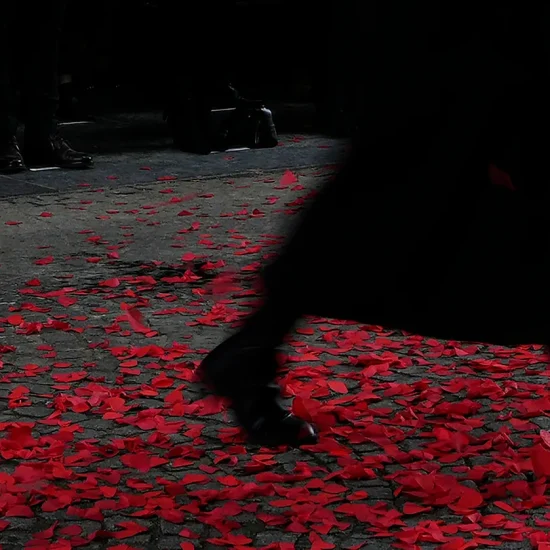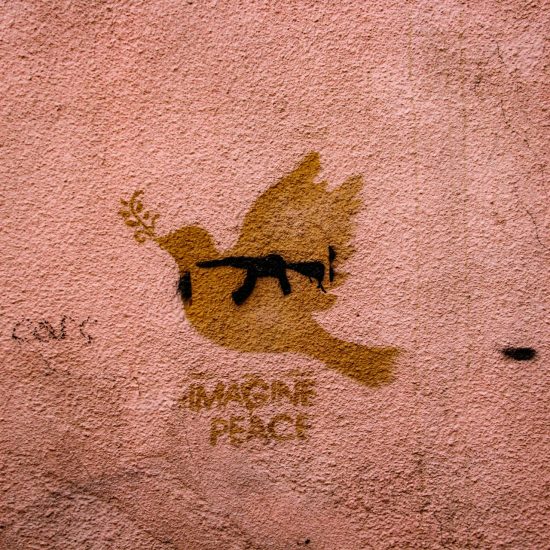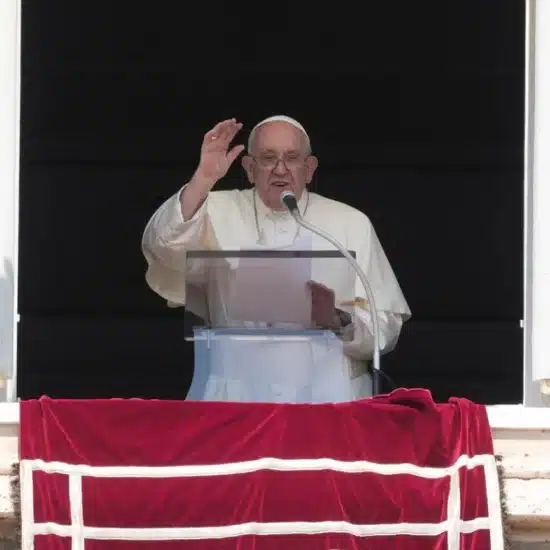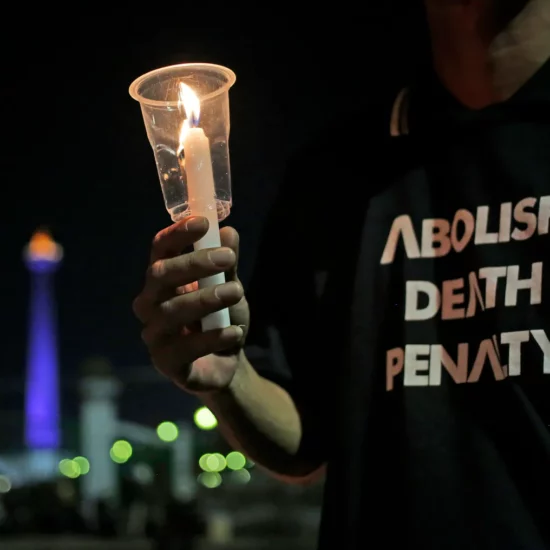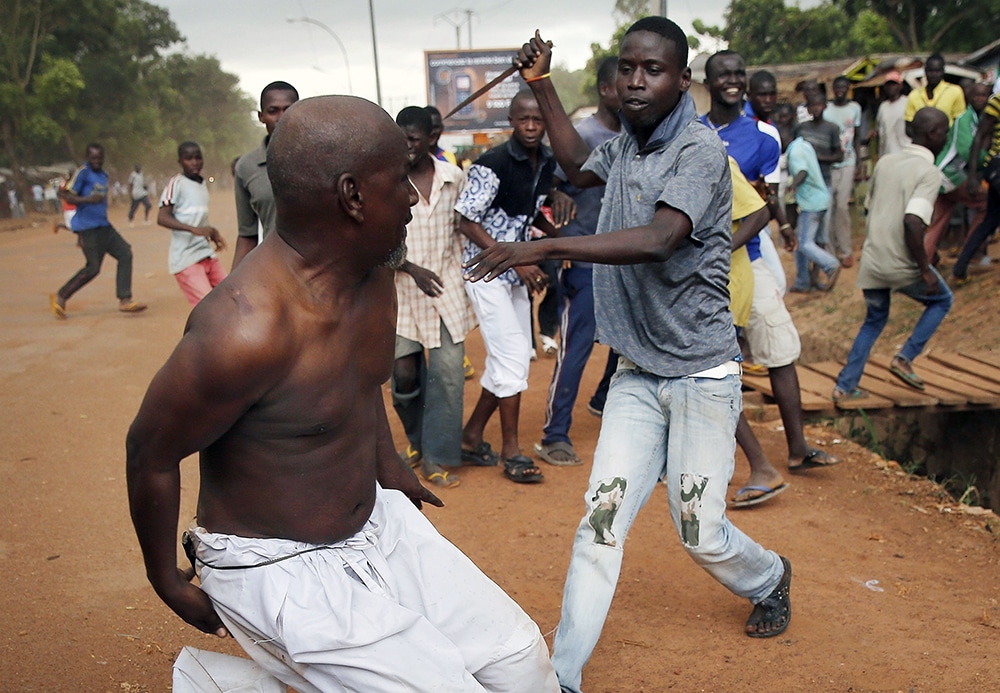

In this Dec. 9, 2013, file photo, a Christian man, right, chases a suspected Muslim Seleka officer in civilian clothes with a knife near the airport in Bangui, Central African Republic. Central African Republic and 14 rebel groups signed a peace deal on Wednesday, Feb. 6, 2019 even as some expressed alarm about the possible suspension of prosecutions after five years of bloody conflict. (AP Photo/Jerome Delay)
NAIROBI, Kenya (RNS) — The government of the Central African Republic and 14 rebel groups signed a peace agreement Wednesday (Feb. 6), raising hope for an end to one of Africa’s bloody and complex conflicts.
Religious leaders hope the latest peace deal will bring an end to attacks on churches and mosques.
The majority-Christian country plunged into violence in 2013, when a coalition of Muslim rebels known as Seleka overthrew the government of Francois Bozize, a Christian, and installed Michel Djotodia, who is Muslim, as president.
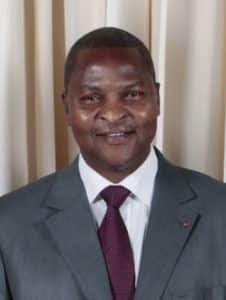
Faustin-Archange Touadera in 2009. Photo by Lawrence Jackson/White House/Creative Commons
That triggered the formation of a counter, pro-Christian militia known as anti-Balaka. Djotodia resigned in 2014 under international pressure, but Seleka factions and anti-Balaka militias have continued to engage in revenge attacks.
With the violence killing thousands and displacing an estimated 4.5 million people, the government of President Faustin-Archange Touadera and the rebel factions held the first-ever direct peace talks in Khartoum, Sudan, on Jan. 24.
On Jan. 2, a deal was announced, and it was formally signed in Bangui, the CAR capital, on Wednesday.
“The first effect of this agreement is the cessation of all violence against civilians,” Touadera said after the signing.
But some religious leaders are remaining cautious about the agreement even as analysts say the pact clears the path for peace and reconciliation in the country.
Seven past agreements have disappointed the clerics, including the last, which the Catholic Church helped broker in 2017. It ended in less than a day, with hundreds killed in the fighting.
Still, there is hope for peace.
“I cannot tell anything now, but anything that promises to bring peace for the people is welcome,” said Roman Catholic Archbishop Nestor Desire Nongo-Aziagbia, the vice president of the Central African bishops conference, when asked for a comment.
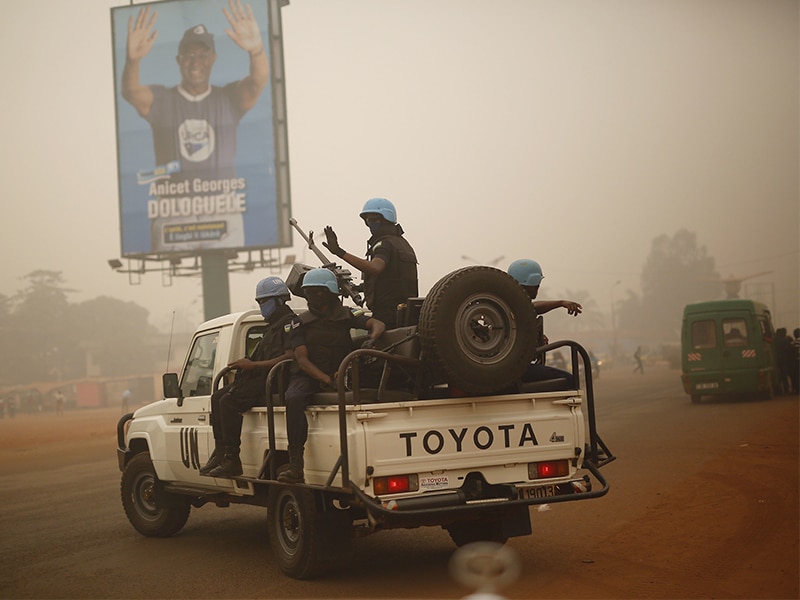
UN forces from Rwanda patrol the streets of Bangui, Central African Republic, in this Feb. 12 2016 file photo. The United Nations peacekeeping mission in the Central African Republic is requesting about 750 more troops, according to a confidential cable obtained by the Associated Press. (AP Photo/Jerome Delay, file)
In CAR, armed militias control 80 percent of the country and frequently fight over mineral resources, which include gold, diamonds and uranium. The former Seleka faction controls the north and east, while the anti-Balaka militias control the south and the west.
Although peace agreement details have not been made public, reports indicate that the groups agreed on key issues, including an all-inclusive government and the controversial issue of amnesty for militia fighters.
Apart from the revenge killings, the anti-Balaka movement has forced thousands of Muslims to flee the country.
Francis Kuria Kagema, general secretary of the African Council of Religious Leaders, told Religion News Service that religious leaders welcomed news of the peace deal.
“We urge the government to facilitate the safe return of all refugees and work with the warring groups to re-create the society in Central African Republic,” he said.
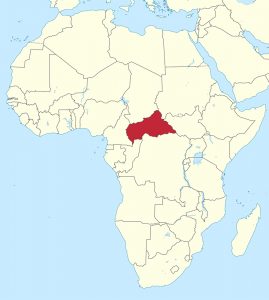
Central African Republic, red, in central Africa. Image courtesy of Creative Commons
Kagema said his organization will work to build peace between faith groups and foster religious harmony, which was fractured during the war.
Amnesty for the militia fighters had been a sticking issue, with rebel leaders demanding commitments. The government had been reluctant to grant amnesty, instead leaning toward prosecuting militia fighters for war crimes.
“It is a commitment we are seeking from both sides, whether it is the government, armed group, international communities,” Abakar Saloum, president of the Patriotic Front for the Revival of Central African Republic, one of the rebel factions, told Africa News.
In the cycle of violence, churches have come under attack from both sides, with a number of priests and pastors being killed. Monasteries have also been targeted, with nuns attacked and robbed by gangs. Scores of mosques have also been burned.
When an Islamist rebel faction descended on Sacred Heart Cathedral in the town of Alindao on Nov. 15, two Catholic priests and a Protestant pastor were among the dead in one of the deadliest attacks on a church mission.
By January this year, the death toll from the attack had reached 80, according to church leaders.
The assault also marked a disturbing rise in the violence targeting the Christians in CAR’s south.
“The attacks can be seen as an attempt to silence the church, which continues to stand for the truth,” Nongo-Aziagbia said recently.

